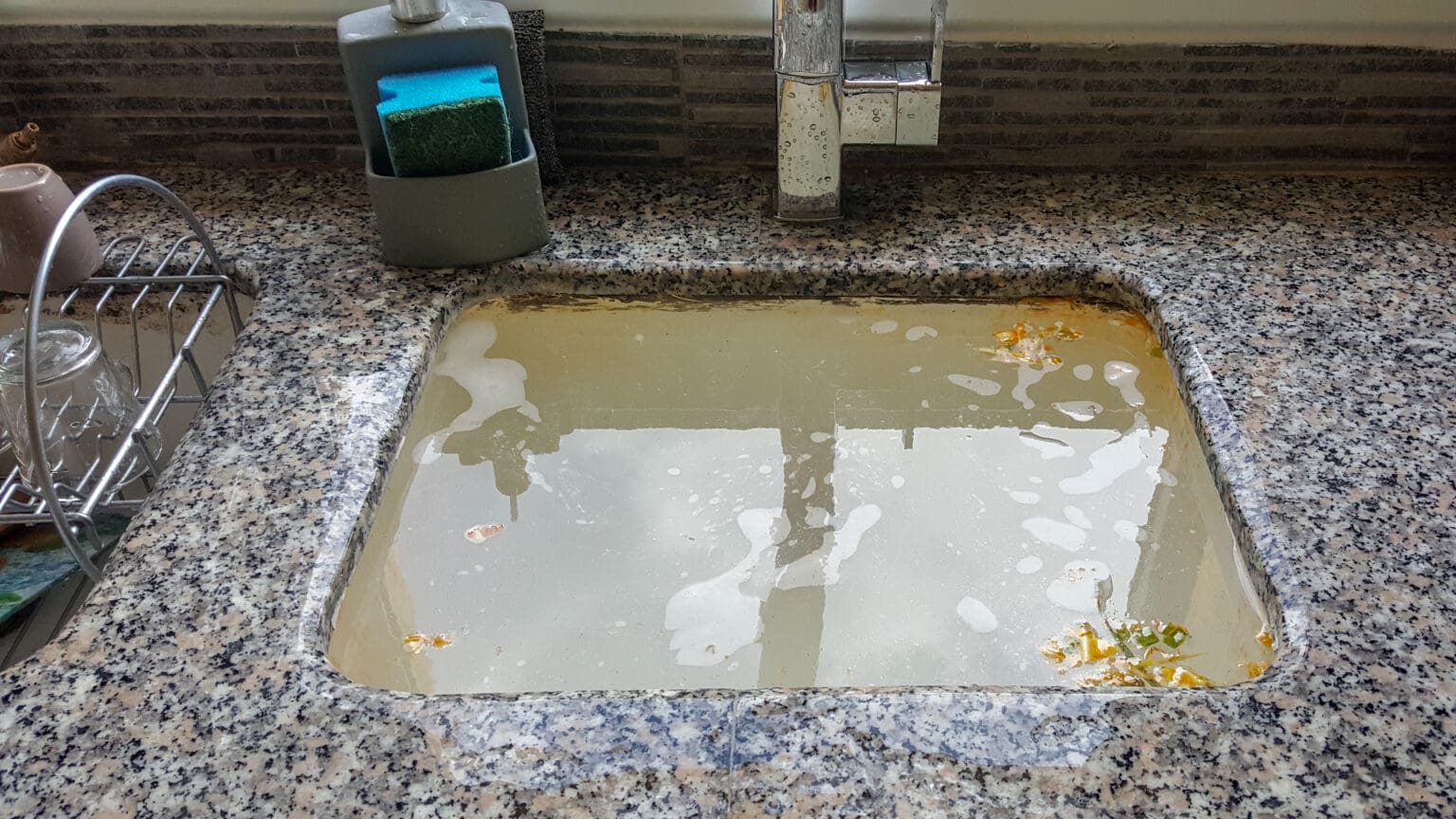Do you know what’s in your water? Whether you drink tap water or only use it for cooking and cleaning, it’s important to understand what’s coming out of your taps in your Phoenix home. If you’re not satisfied with the purity or taste of your water, learn how you can improve your water quality with the best home water filtration system for your specific needs.
The Importance of Water Filtration in your Home
The first step to understanding the right filtration system for your home is to determine what’s in your water. Your tap water is typically safe to drink. If you’re concerned, you can contact the EPA to find a detailed report about water safety and purity in your local area.
However, that’s only part of the story. Your water must also travel through your pipes before it reaches your glass. Older homes can contain rusted, corroded, or lead pipes that can cause additional contaminants to enter your water.
Because of this, many homeowners are switching to bottled water. However, bottled water has several downsides, including:
- Environmental concerns of additional plastic
- More expensive than tap or filtered water
- Some bottled waters are simply tap water from other municipalities
Fluoride is a common additive to your water. Many municipalities have added fluoride to the water as a health benefit. However, this contaminant is surrounded by other contaminants. For some, any chance of a health benefit is worth the addition. However, for many, the benefit is minor and difficult to prove.
Don’t leave these harmful chemicals and bacteria in your water. Find out which filtration systems can clean your water of each individual contaminant, and determine which system provides the most complete coverage for all your health needs.
Is the Tap Water in Phoenix Safe?
In warm climates, like Phoenix, it’s important to drink enough water every day. Higher levels of water intake exponentially increase the risk of certain contaminants. While water in Phoenix is generally safe to drink straight out of the tap, there have been many reports of harmful chemicals and contaminants entering city water systems, such as:
- Synthetic hormones, like contraceptives
- Antibiotics, antidepressants and other pharmaceutical drugs
- Shampoos, disinfectants and other household chemicals
- Herbicides, pesticides and other farming chemicals
The reservoirs feeding the Phoenix water system can be exposed to all manner of local contaminants. Every effort is made to ensure your tap water is safe to drink, but some homeowners choose to add an additional layer of protection within their home. A water filtration system can give you the reassurance that no heavy metals, excessive minerals, or bacteria have entered your glass of water.
Improve Water Flavor
Another reason to choose a water filtration system is because of the taste. Even if your water is completely safe to drink, it can have an unusual or unappetizing flavor. Because of changes in the filtration process, the flavor could change periodically leaving you with constantly changing water.
Don’t let unusual flavors keep you from staying hydrated. Some people prefer the flavor of minerals in their water, such as calcium or sodium. If you prefer a more pure taste and feel to your water, a filtration system can help. Find a water filter to remove chlorine, calcium, sodium and other minerals and contaminants from your tap water today.

All About Reverse Osmosis
Any conversation about filtration systems usually starts with reverse osmosis. This popular system boasts plenty of advantages but can come with some disadvantages. Learn how reverse osmosis can help protect your water and find out if it’s the right system for you.
Reverse osmosis is an incredibly precise filtration system. In a nutshell, think of it as a multi-faceted filtration system designed to achieve the highest levels of filtration. Many systems can remove anything 0.001 micrometers or smaller. It works by using a great deal of pressure to reverse the natural osmosis process.
Osmosis allows minerals, bacteria, and other contaminants to filter through cell walls. Water naturally strives to achieve equilibrium, so it will move from one place to another. Reverse osmosis takes advantage of this system by forcing your drinking water through a semipermeable membrane to remove water from concentrations of other molecules.
What are the advantages of reverse osmosis water filtration?
Just like any filtration system, reverse osmosis provides you with pure-tasting, safe drinking water. You won’t experience any of the common symptoms of hard water. In addition, reverse osmosis can protect you from certain mineral-related health concerns, such as:
- Obesity
- Kidney stones
- Cataracts
- Gallstones
- Hearing loss
These conditions are caused by a buildup of sodium, magnesium, calcium or other minerals in your water. It also protects you from less common contaminants, such as lead.
Installation can be fast and convenient. It’s still recommended that you have the professionals at Day & Night Air install your system to prevent any leaks and ensure proper filtration. However, in a very short time, you’ll have a safe drinking faucet.
What are the disadvantages of reverse osmosis?
One of the biggest disadvantages of reverse osmosis is that it only works for your drinking water. This system requires a separate faucet, so you won’t enjoy pure, filtered water for your laundry, dishwasher or cleaning.
Reverse osmosis requires an extensive set of filters. The filters are convenient to replace but can be more costly than other filtration systems.
What are the types of filtration systems for your home?
Reverse osmosis isn’t the only way to enjoy clean, pure water in your home. Here are some other common filtration systems and their advantages and disadvantages. Understand the best way to clean your water and protect your home before you commit to a single system. When shopping for water purifiers for home, here are some of the best filtration options:
- Pitcher filters
- Charcoal sticks
- Reverse osmosis
- Distilled water
- Bottled water
- Solid block carbon
- Under-counter filters
- Ionizer
Water Pitcher Filters
One of the most cost-effective solutions for filtration is a pitcher filter. Pitchers use a granulated activated charcoal filter to clean your water and remove common contaminants. Simply fill your pitcher with drinking water and enjoy.
However, you get what you pay for. These pitchers are typically designed to improve the taste of your water by removing minerals but doesn’t protect you from harmful bacteria or heavy metals. Like reverse osmosis, pitcher filters aren’t suitable for filtering water for daily cleaning, but only for drinking.
Water Filtration Charcoal Sticks
Place a charcoal stick in your bottle or home pitcher for one of the easiest and most cost-effective solutions. These small charcoal sticks absorb a lot of minerals and other contaminants. It’s an incredibly green option because it doesn’t need any complicated plastic system.
Just like a pitcher filter, these sticks don’t protect you from every harmful contaminant, so you may want to consider a larger system for complete coverage. The setup may be easier, but daily use can be less convenient than other systems.
Distilled Water
Distilled water removes all the most dangerous heavy metals and bacteria, however, it won’t remove VOCs or endocrine disruptors from your water. You can purchase distilled water in bottles or a large distillation machine for home use.
Bottled water comes with its own pros and cons. A home system can be quite expensive and bulky, making it less practical than other systems.
Solid Block Carbon Water Filtration
This highly successful filtration option uses the same strategy as carbon sticks, but with a large, singular block of carbon. The EPA recommends this system as a highly effective option. It can clear your water of all the most harmful contaminants, including:
- VOCs
- Pesticides
- Herbicides
- Bacteria
- Fluoride
- Nitrates
- Heavy metals
- Parasites
- And more
Most solid block carbon filters aren’t installed under the counter. This means that you’ll need to store the bulky filter on your countertop. For some homes, this may not be a downside, but others can’t afford the countertop space.
Water Filtration Ionizers
A unique alternative to filtration is an ionizer. All of the purification systems so far have focused on using media to filter or block certain contaminants from your drinking water. An ionizer, however, uses positively-charged ions to adhere to certain minerals to a charged plate. This allows you to manually adjust the pH levels of your water.
While manufacturers claim this process enhances the health benefits of your water, the EPA can’t confirm these claims. Ionizers are often paired with a reverse osmosis system to receive ultrafiltration and clean, great tasting water.
Under the Counter Water Filters
Finally, there are many systems that are set up under your counter, just like a reverse osmosis system. These systems use a variety of purification systems, filter media, or even ultraviolet let to clean your water. Some filters connect directly to your faucet, allowing you to enjoy filtered water for every use. Other filters come with a new faucet for drinking use only.
The Verdict
When it comes to the very best purity for your home drinking water system, the best two options are solid block carbon filters and reverse osmosis systems. However, a reverse osmosis system is an incredibly convenient and unobtrusive system for your drinking water.
If you’re ready to enjoy safe, fresh drinking water for your home near Phoenix, AZ, contact Day & Night Air today to learn more. Our experienced technicians can not only quickly install a system at your home, but we can also discuss the pros and cons of reverse osmosis water and help you determine the best solution for your home. While you’re focusing on drinking eight glasses of water a day, let us focus on keeping that water pure and refreshing.






